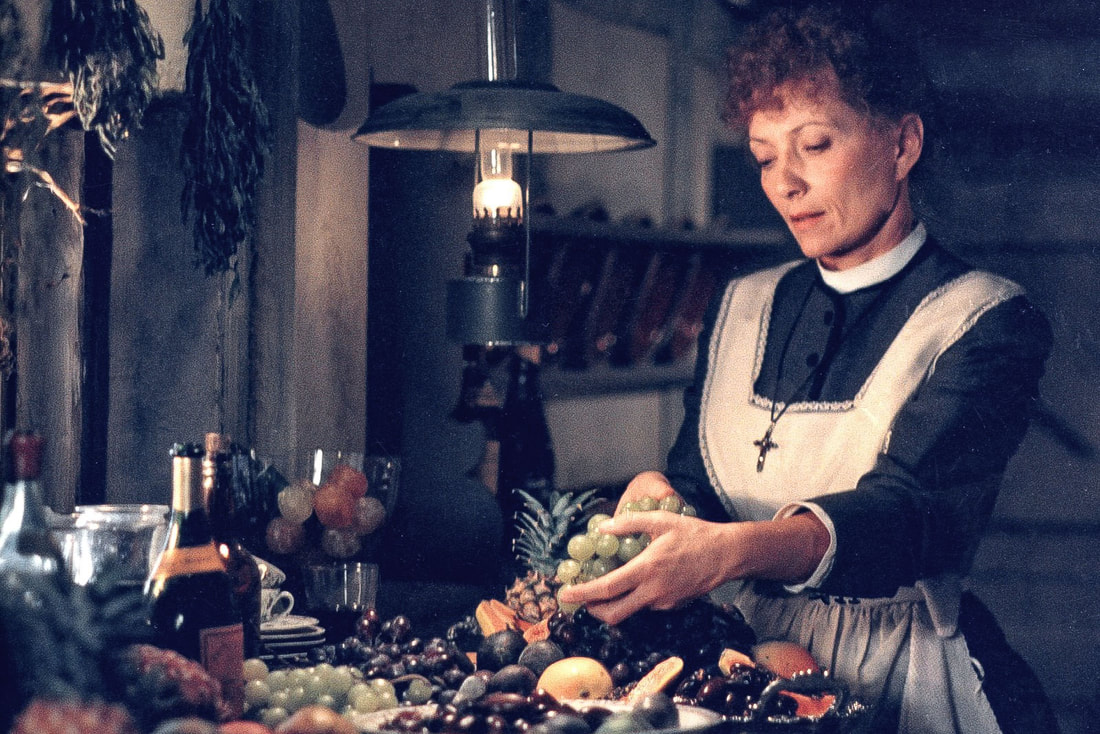 An endearing film set in a quaint, Danish village. I think this film lends itself well to rewatches, so each character isn’t fully developed in my Initial viewing. But this film gives such a beautiful picture of grace in the Christian life. Jesus’ free offering of salvation to those who are ungrateful, and who reject him. The world class chef leaves her position to serve in this village, and offers all her winnings from a lottery to prepare the finest meal for the people of the village to commemorate their late priest’s 100th birthday. It’s a wonderful picture of the incarnation, Grace, and love in a most peculiar setting. But it all lands so wonderfully. Babette's Feast will be shown on Sunday, September 20th at 7:00 p.m. in the Fellowship Hall. Reviewer Michael Svendsen is an intern at St. James Church. He is pursuing a Master's Degree from The Southern Baptist Theological Seminary. In the Apostle’s Creed the church affirms the communion of saints, and in November St. James Church focused on what it means to be a saint. The church faces the confusion of the two when speaking about saints and our communion with them. Scripture refers to all believers as saints.[1] Sainthood is neither a special status within Christianity nor a level of holiness. The Apostle Paul makes his address to saints in all but two of his Biblical letters, making the title of saint equivalent to disciples or brethren.[2] Commenting on Philippians 1:1, B. C. Caffin states, “St. Paul uses the word ‘saint’ as the general name for his converts, like ‘Christian.’ The word ‘Christian’ occurs only three times in the New Testament.”[3] The New Testament uses saint coincidentally to other generic terms for Christians.
First Corinthians makes especially clear that this sainthood of all believers is by God’s grace, not by human merit. The epistle’s address reads “To the church of God that is in Corinth, to those sanctified in Christ Jesus, called to be saints together with all those who in every place call upon the name of our Lord Jesus Christ.”[4] Prior to the title saints arrives the clarifying statement that the sanctification comes in Christ Jesus. After the title comes the corresponding identifier of those who have called upon the name of our Lord Jesus Christ. Augustus Strong says the whole epistle teaches “holiness existing in germ and anticipation; the expressions deriving their meaning not so much from what these early believers were, as from what Christ was, to whom they were united by faith.”[5] Later in the epistle, when Paul looks forward, he says, “the dead will be raised imperishable, and we shall be changed. For this perishable body must put on the imperishable, and this mortal body must put on immortality.”[6] The passive voice shows that being raised and changed is not the accomplishment of the believer.[7] God sovereignly initiates sanctity by Christ’s completed work. John Gray speaks of God’s sovereign action in sainthood, “The saints are simply the friends of Christ, those of no great distinction of themselves whom He has chosen to be of His company.”[8] The sainthood of all believers points to God’s grace extended equally to all who find their identity in Him. Paul’s admonishments in the epistles display that the early believers did not merit sainthood. Commenting on Philippians 1:1, Caffin reminds that the Christians at Philippi were far from holy.[9] R. Finlayson agrees, writing “They were saints, not so much in actuality, as in idea, in aspiration. They regarded purity, separation from the world, as their distinctive badge.”[10] Paul’s admonishments of grievous sins point to the wickedness of the church, yet Paul knows that Christ, not their own actions, brought about their sanctity. Colossians 1:12-14 calls the believers to thank God who qualified them to be saints. Martin Connell suggests Paul’s reasoning, “Although he knew the foibles of members of the individual churches, Paul knew too that, by the love and grace of God, these people were holy; indeed they were saints.”[11] These believers are not called saints because of their holiness in the present, but because God transferred them into the kingdom of light.[12] The fourth century church father, John Chrysostom, says it wouldn’t be possible for anyone to live a life holy enough to be a saint, which is why it is called an inheritance, a gift received.[13] The addresses of Romans and 1 Corinthians especially emphasize that the title saint both identifies and calls the believer to live into that identity. God makes his people holy in Christ and calls them to be holy.[14] A saint’s holiness comes by being set apart. J. R. Thomson articulates, “A saint is one separated and consecrated, made holy by being called out of a sinful society and set apart and dedicated to God.”[15] Those who have been set apart for God are holy by definition. Paul calls them to live into the reality of their holiness or set-apart-ness. Connell argues that few congregations understand the term saint in this way and speculates that this is because one who knows his sin is reluctant to see himself as a saint. He suggests, “Living members of the church no longer usually imagine themselves as saints, perhaps knowing themselves and their sins too well.”[16] But of course, that comes from a distorted view of meriting God’s grace. Connell continues, “The church’s pastoral theology today does not much encourage people to find the saints among themselves or to consider their own sanctity as based not on their merits but on the promise and realization of God’s love.”[17] Scripture treats all believers as saints because of God’s unmerited grace. All Christians, alive and dead, should be thought of and treated as saints.[18] The church has called the bond between the saints living and deceased the communion of saints. Ephesians 2:18-20 displays this idea when stating: For through him we both have access in one Spirit to the Father. So then you are no longer strangers and aliens, but you are fellow citizens with the saints and members of the household of God, built on the foundation of the apostles and prophets, Christ Jesus himself being the cornerstone. Paul calls the church at Ephesus, and subsequently all believers, fellow saints with the apostles and prophets. He gives the picture of a building made up of both foundation stones, representing people who have gone before, and upper stones that are still being added. Perhaps Paul got the idea from Jesus’ prayer recorded in John 17:20-21: “I do not ask for these only, but also for those who will believe in me through their word, that they may all be one, just as you, Father, are in me, and I in you, that they also may be in us.” Not only does Jesus pray for the twelve to be unified, but he includes all believers who will follow Him. This unity transcends space and time, leading the early church to believe “itself privileged to enjoy an intimate fellowship with those who had gone on ahead.”[19] Congregations would do well to consider how to live out the Apostolic confession of the communion of saints, reviving the understanding of Baxter in his poetry: “Before the throne we daily meet / As joint petitioners to thee; / In spirit each the other greet, / And shall again each other see.”[22] Just as Baxter pictures the communion of saints in prayer, so living Christians can rejoice in their connection with the communion of saints. During Lent, St. James Church will focus on our calling as saints. We invite you to take part! On Ash Wednesday, we will gather at 6:00 p.m. for dinner and fellowship followed by a service at 7:00 p.m. The following Wednesdays we will be gathering for dinner at 5:15 followed by a service at 6:00 p.m. Each Wednesday we will be studying a Biblical figure. On Sunday's we will consider how God used those Biblical characters to model what it means to live as a Christian. Each day, we will be participating in Lent Madness, a fun activity and daily devotional on those who have gone before us. You can find out a little more about these activities on our website, but the best way is to come in person and see what it's all about! [1] David Thomas, “I Corinthians I,” in The Pulpit Commentary, edited by Henry Spence and Joseph Excell (Grand Rapids: Eerdmans, 1961), 44:2. [2] J. R. Thomson, “I Corinthians I,” in The Pulpit Commentary, edited by Henry Spence and Joseph Excell, (Grand Rapids: Eerdmans, 1961), 44:17. [3] B. C. Caffin, “Philippians I,” in The Pulpit Commentary, edited by Henry Spence and Joseph Excell, (Grand Rapids: Eerdmans, 1961), 47:1. [4] 1 Corinthians 1:2. [5] Augustus Hopkins Strong, Systematic Theology: A Compendium and Commonplace-Book Designed for the Use of Theological Students, (Philadelphia: Griffith & Rowland Press, 1907), 880. [6] 1 Corinthians 15:52-53. [7] Strong, Systematic Theology, 880. [8] John R. Gray, “All Saints’ Day: Saints at Philippi!” The Expository Times 79, no. 1 (October 1967), doi:10.1177/001452466707900123 (accessed October 20, 2019), 27. [9] Caffin, “Philippians I,” 47:1. [10] R. Finlayson, “Philippians I,” in The Pulpit Commentary, edited by Henry Spence and Joseph Excell, (Grand Rapids: Eerdmans, 1961), 47:26. [11] Martin Connell, Eternity Today: On the Liturgical Year, Vol. 2, (London: Continuum, 2006), 2:236-7. [12] N. T. Wright, For All the Saints?: Remembering the Christian Departed, (Harrisburg, PA: Morehouse Pub, 2003), 22. [13] John Chrysostom, “Homilies on Colossians 2,” in Ancient Christian Commentary on Scripture, edited by Gerald Bray, (New York: Routledge, 2005), IX:7. [14] Frank Theilman, Zondervan Exegetical Commentary on the New Testament, (Grand Rapids, Michigan: Zondervan, 2018), 6:65. [15] J. R. Thomson, “I Corinthians I,” in The Pulpit Commentary, edited by Henry Spence and Joseph Excell, (Grand Rapids: Eerdmans, 1961), 44:17. [16] Connell, Eternity Today, 2:236-7. [17] Ibid, 2:238. [18] Wright, For All the Saints?, 27. [19] Wright, For All the Saints?, 16. [22] Wright, For All the Saints?, 37. A new tradition has begun! Last year Ben and Peg Stephens with Tricia Hanley began making their own Christmas Light Display. "Christmas Hill" includes everything from blowups to salvaged antique light creations to their own homemade displays cut out of plywood and drilled for thousands of light bulbs! This year they added a wagon drawn by Bob and Tom, two Percheron draft horses. Stay tuned, and join us next year!
In September of 2019, Donna Vaughn and St. James Church celebrated 50 years of ringing with a homecoming concert!At the end of each month St. James gathers together for a time of fellowship and games. This Month's fellowship featured a special visit from Mz Piggy's Ice Cream that is located on Algonquin Pkwy and a Cornhole Tournament! 7 teams battled for the First Place Trophy...but only one would take it home! Our Tournament Winners Were Houston and Isaiah!
Thank you to Mz Piggy's Ice Cream for serving and sharing your delicious ice cream at our fellowship meal this month and a special thank you to all that brought food, desserts, and cornhole sets! |
Archives
September 2020
Categories |
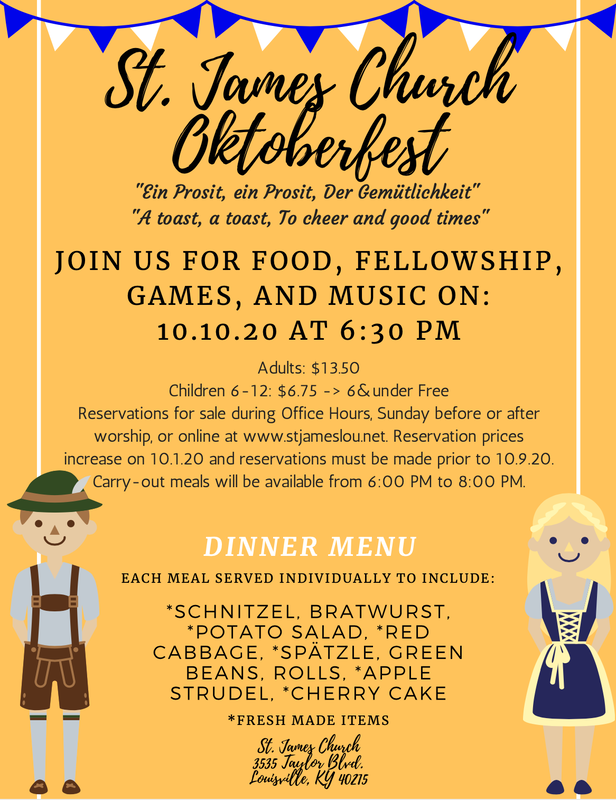
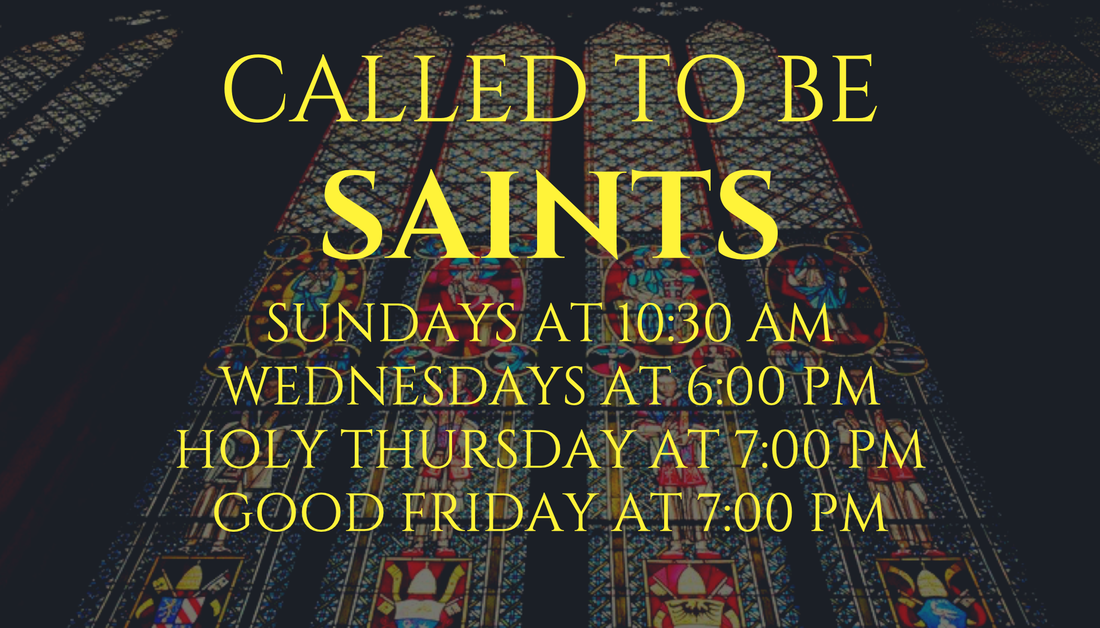





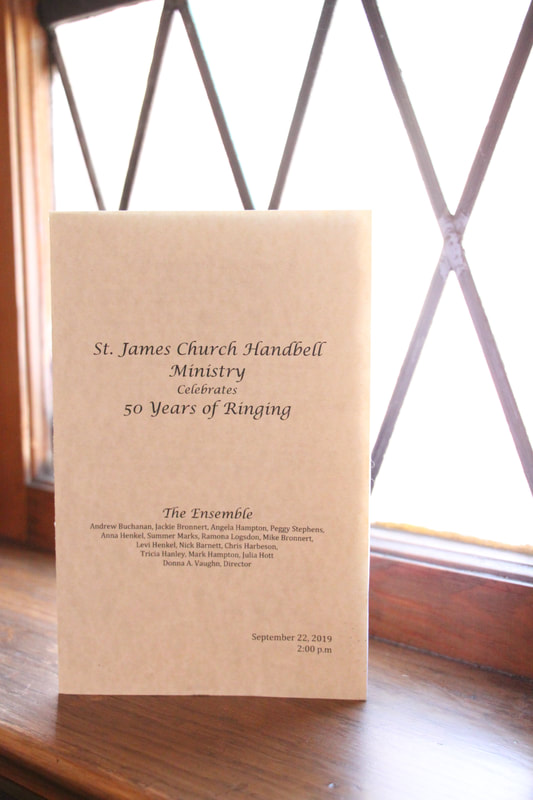
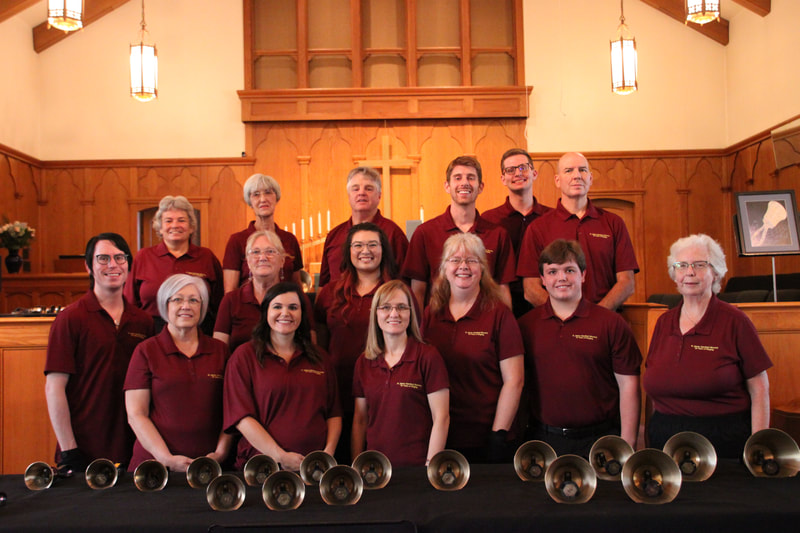
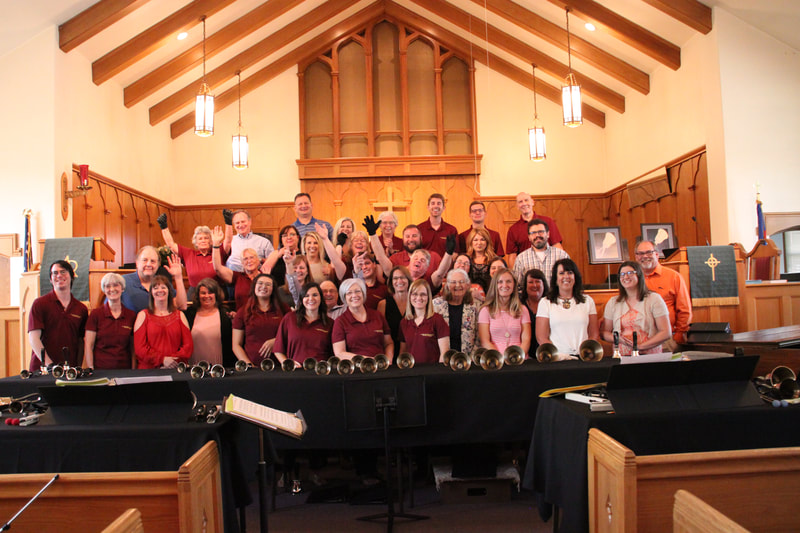
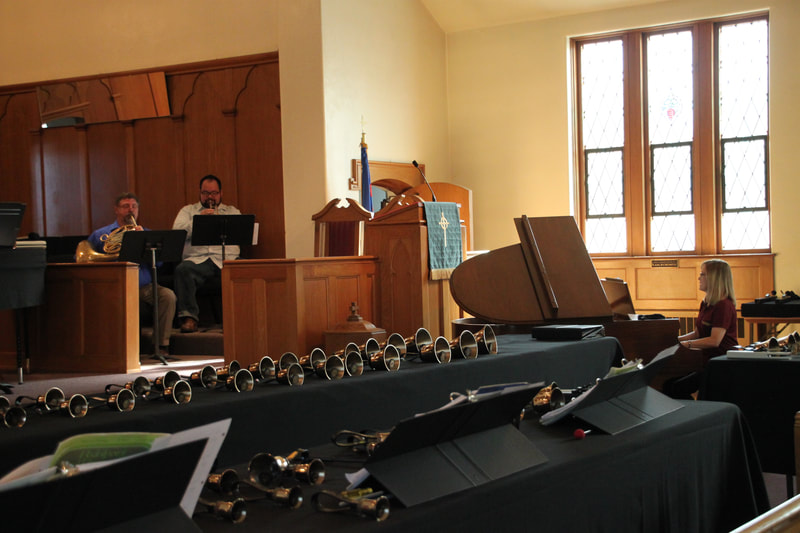
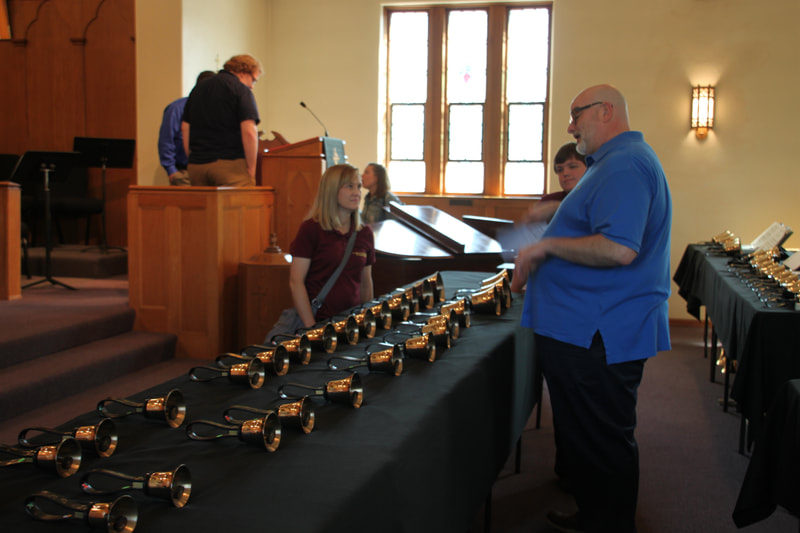
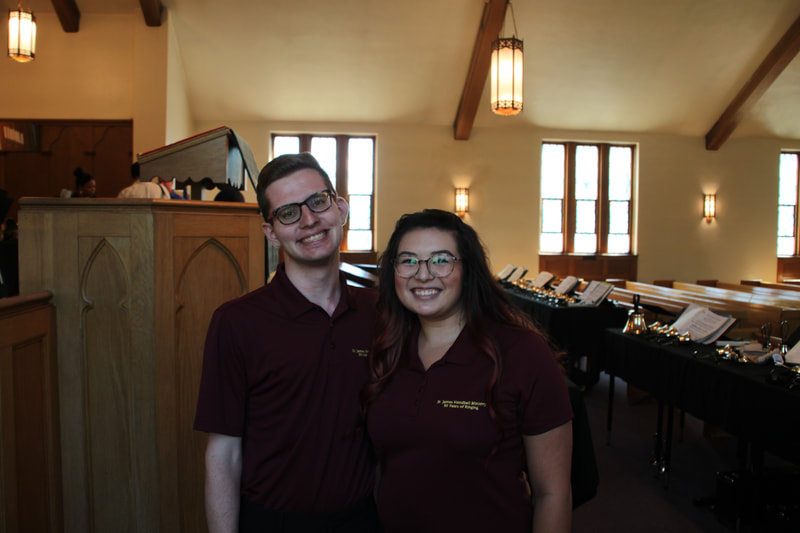
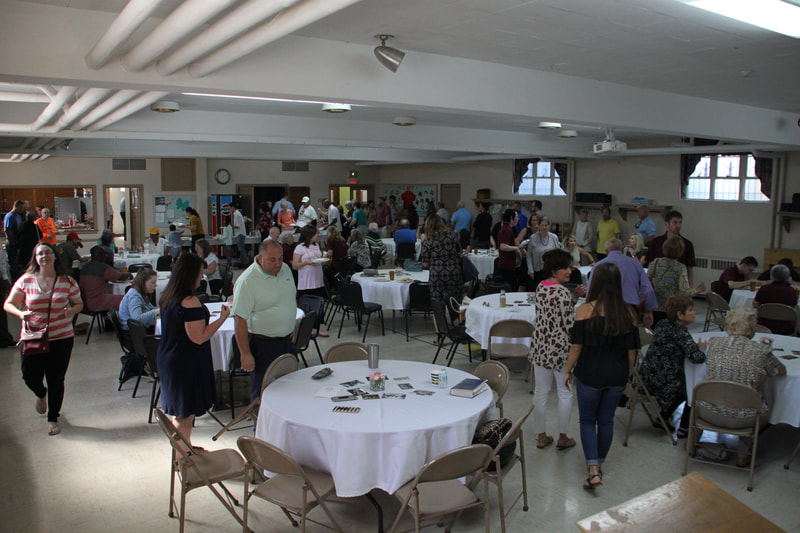
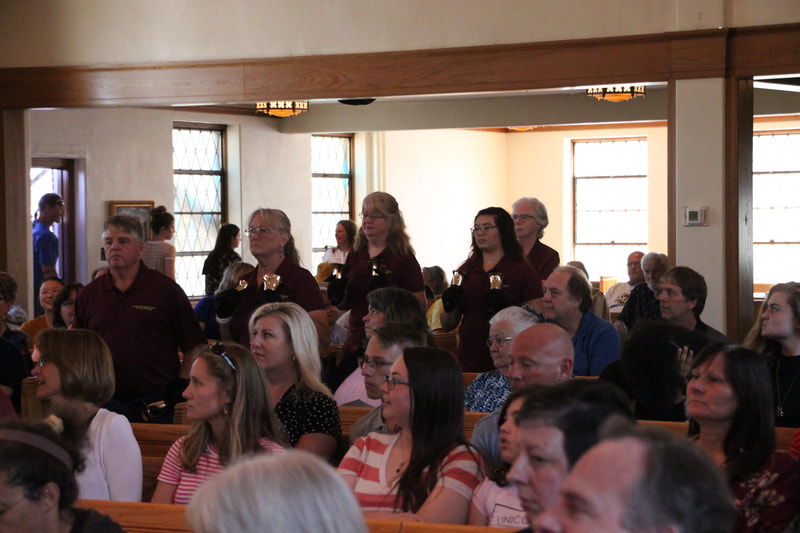
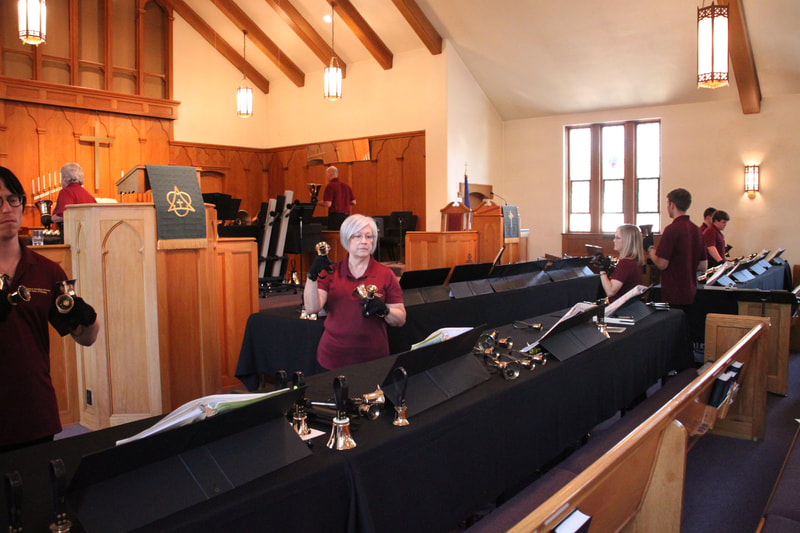
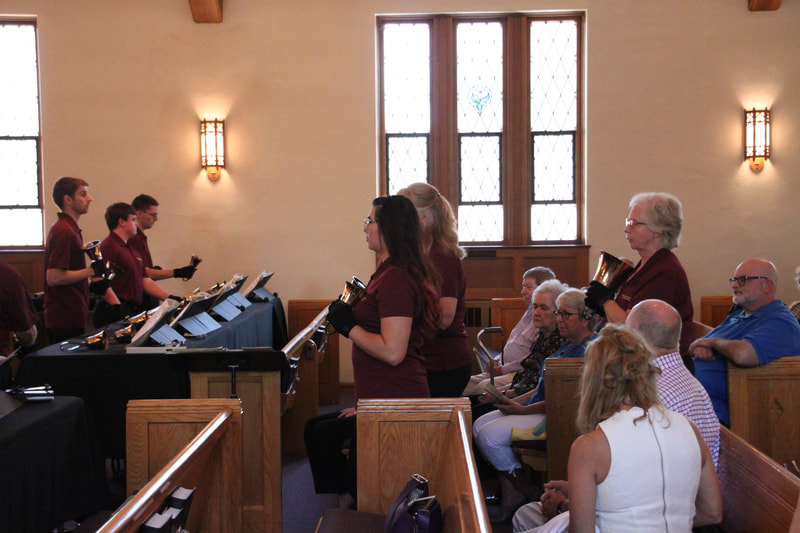
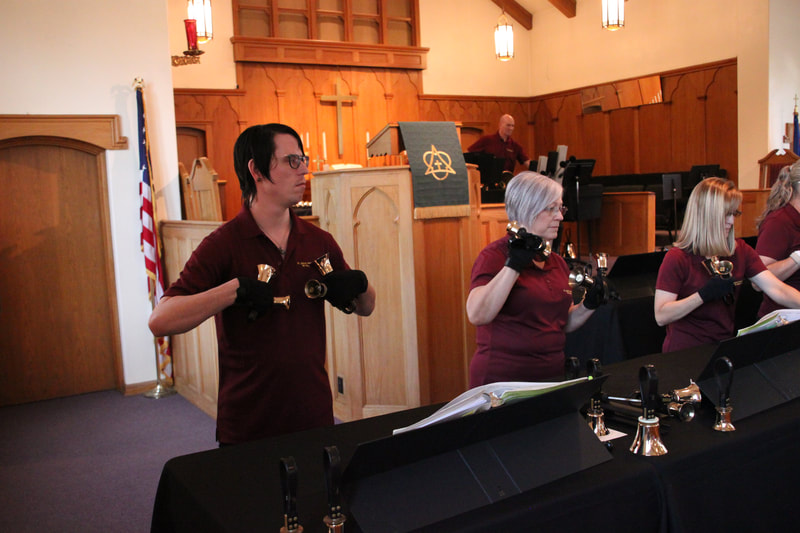
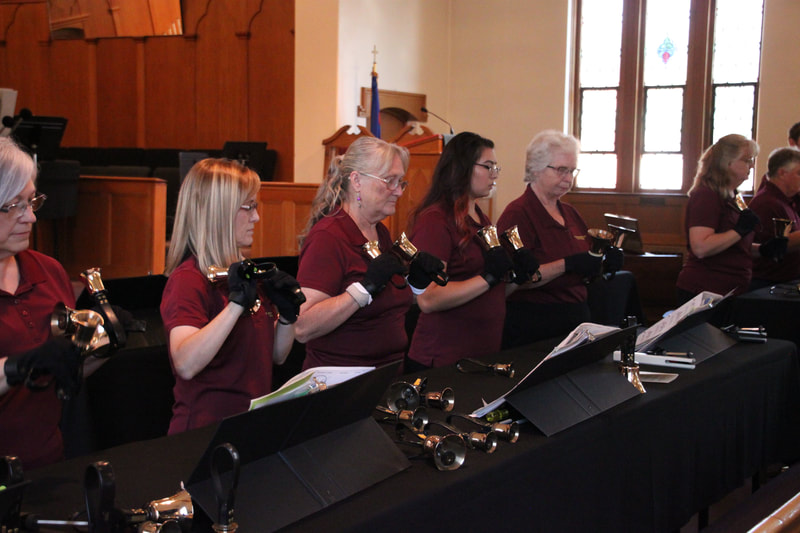
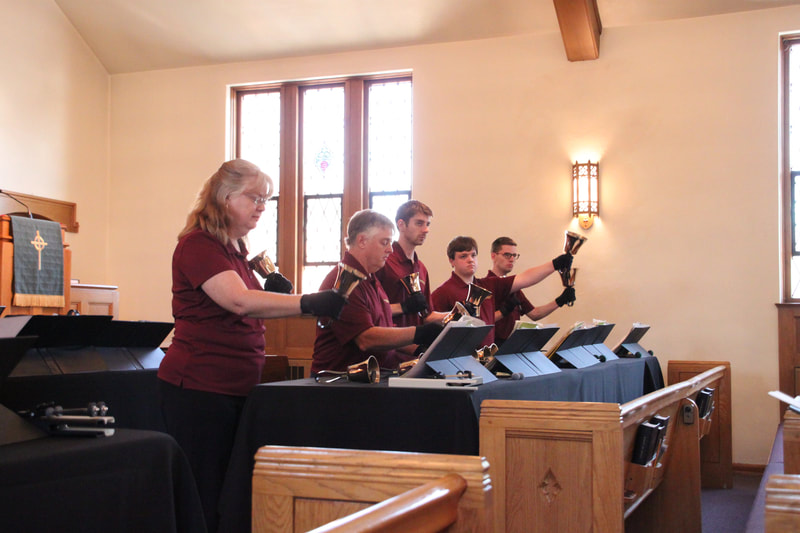
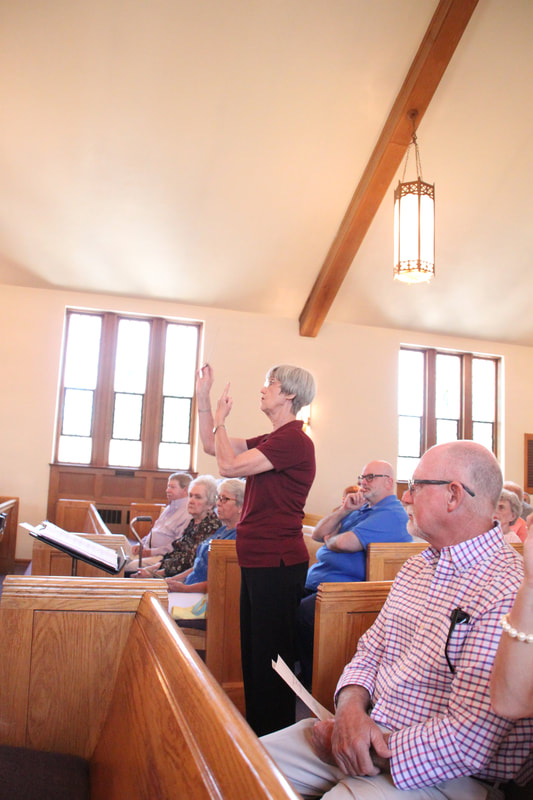
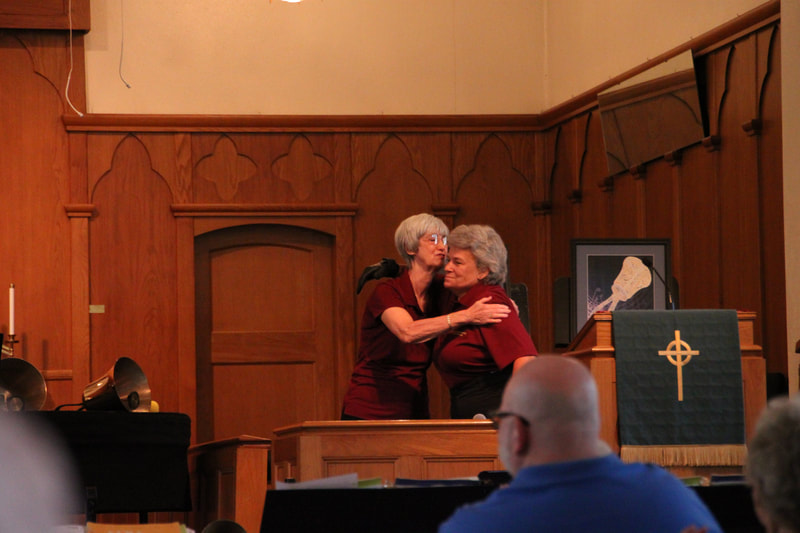
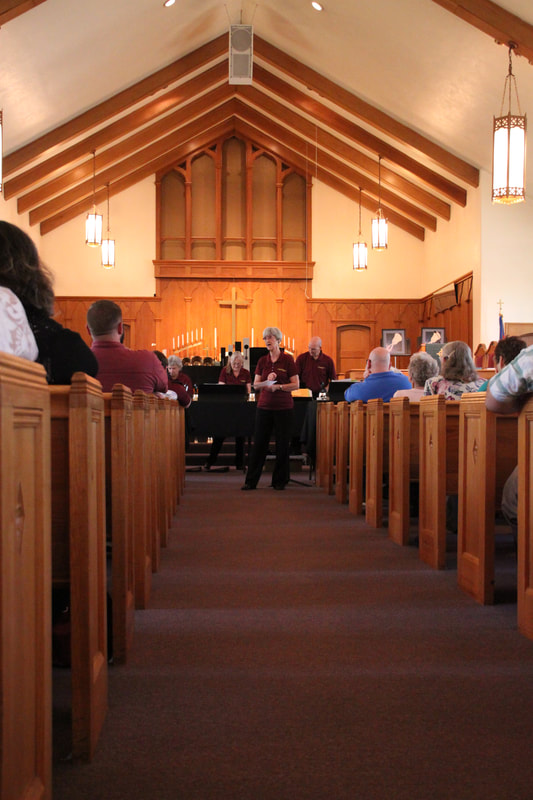
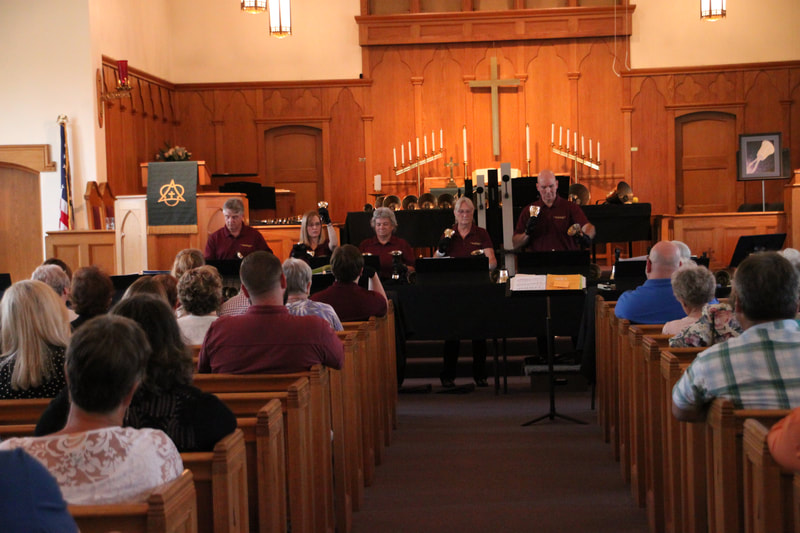
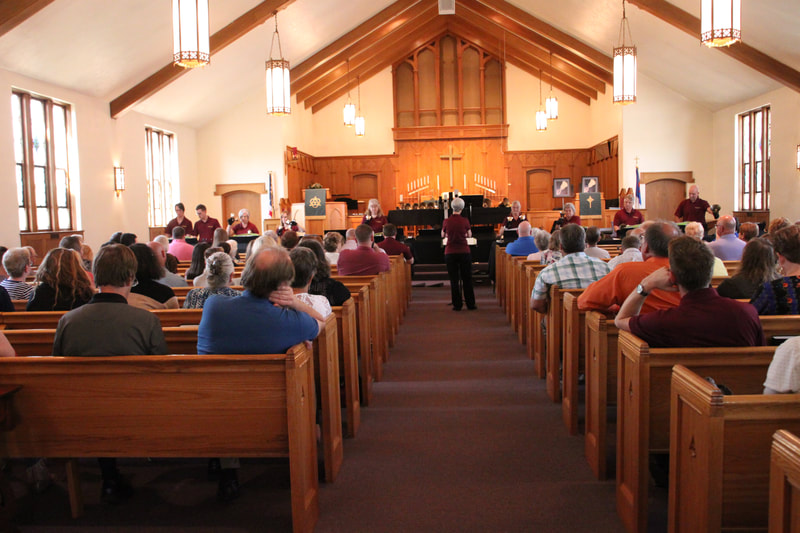
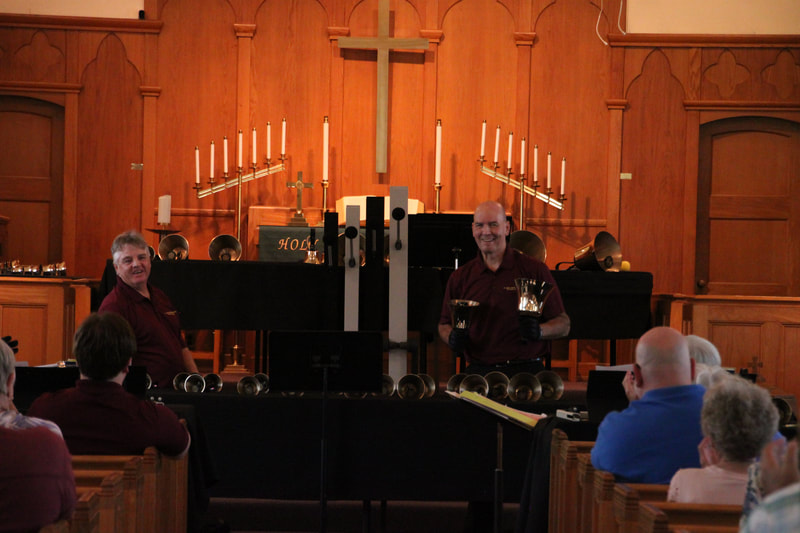
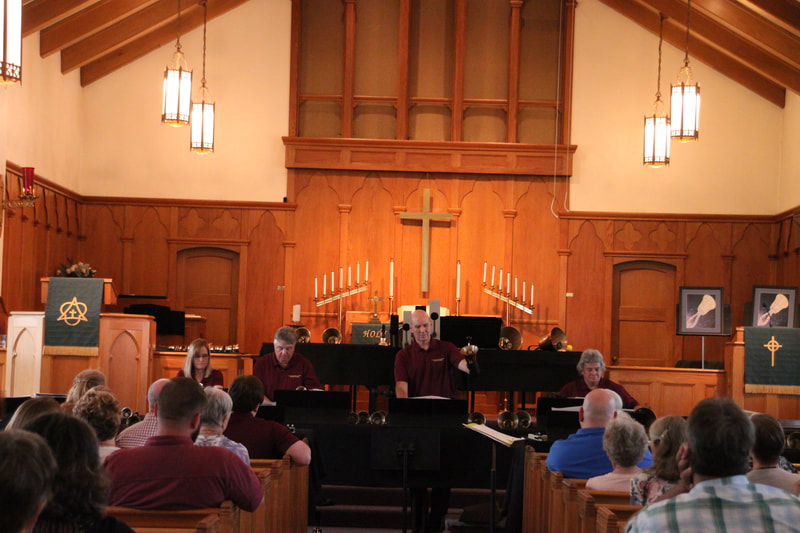
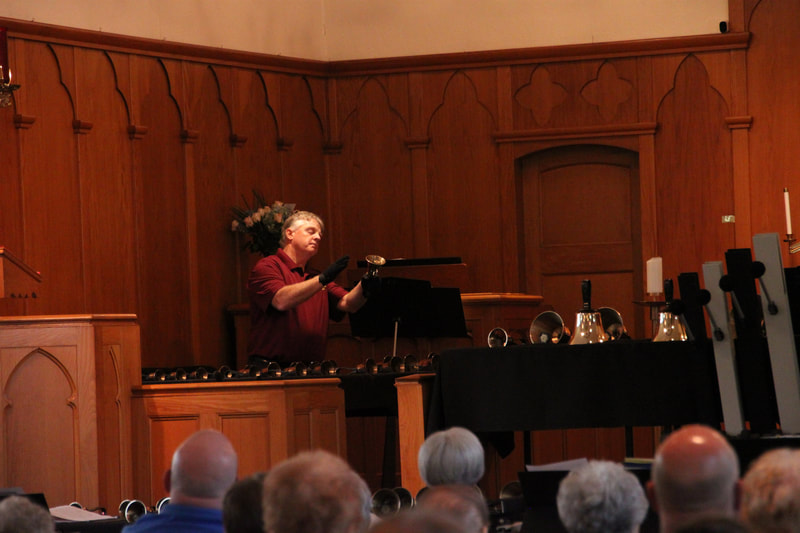
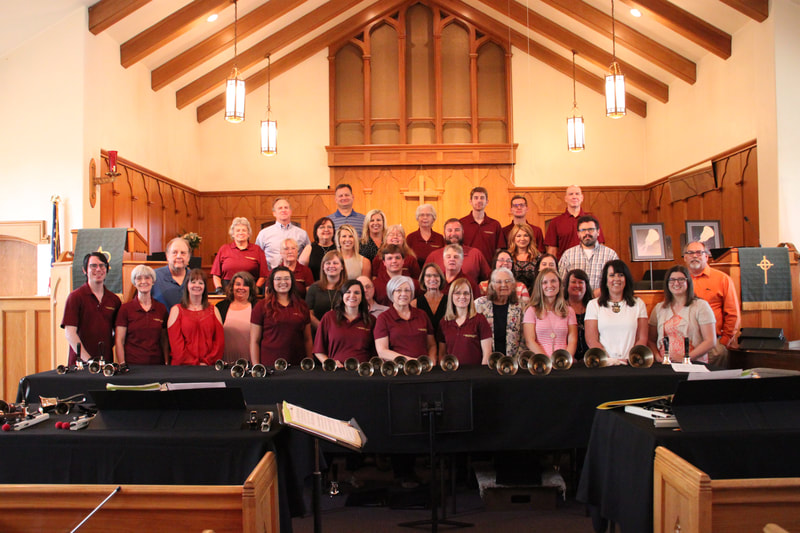
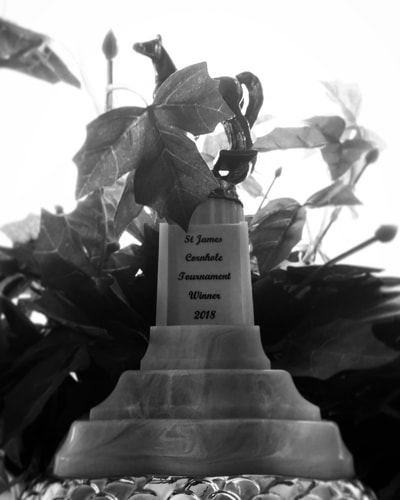

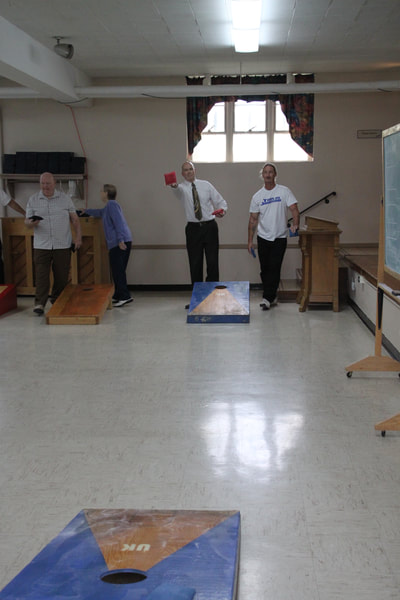
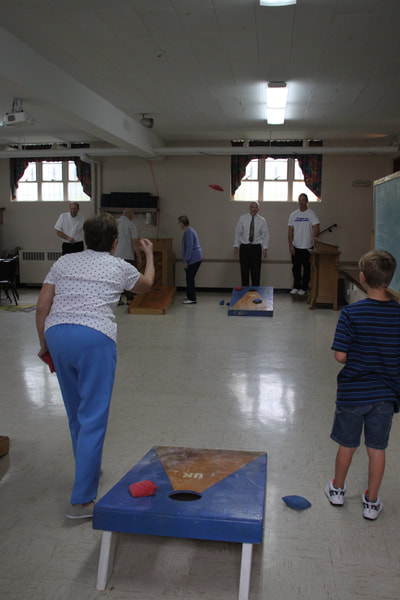
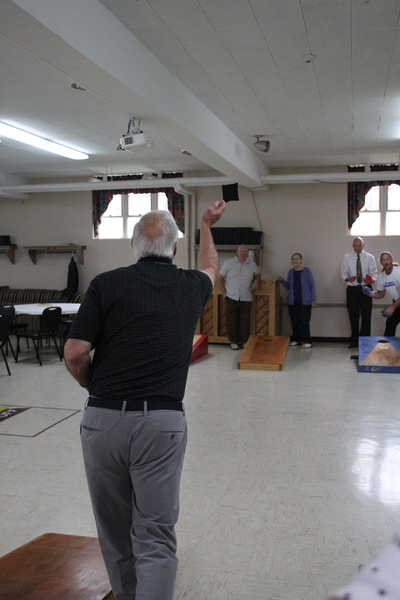

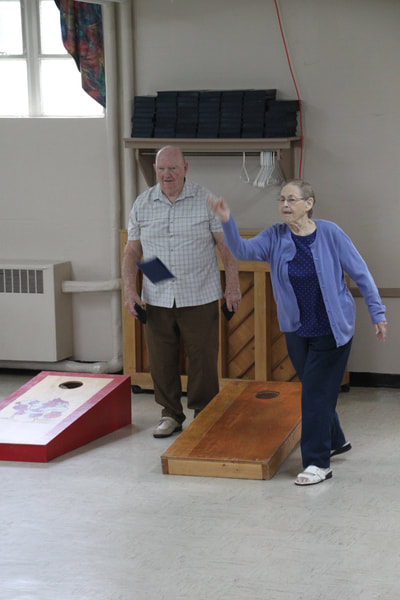
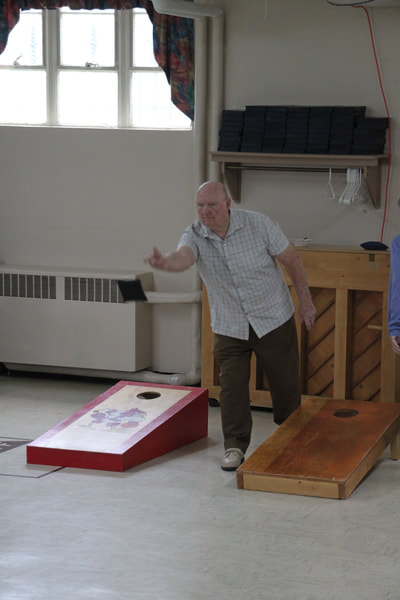
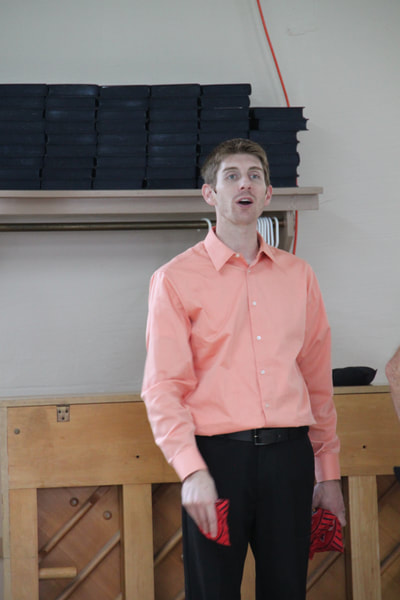
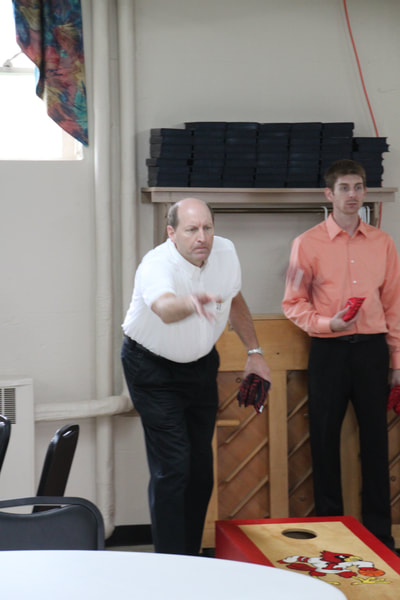

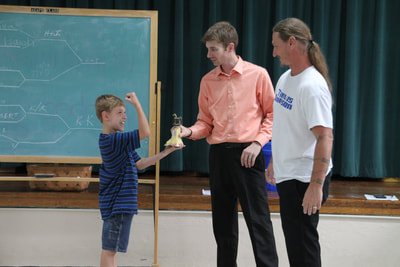

 RSS Feed
RSS Feed